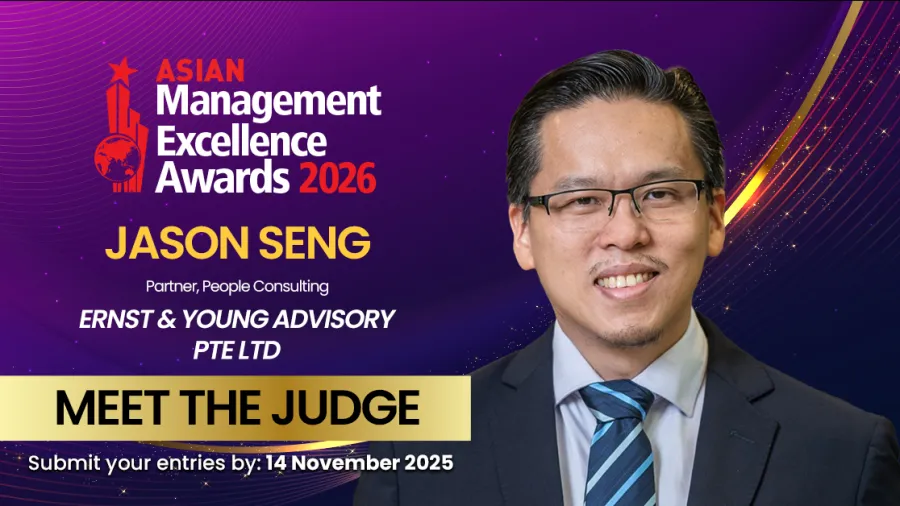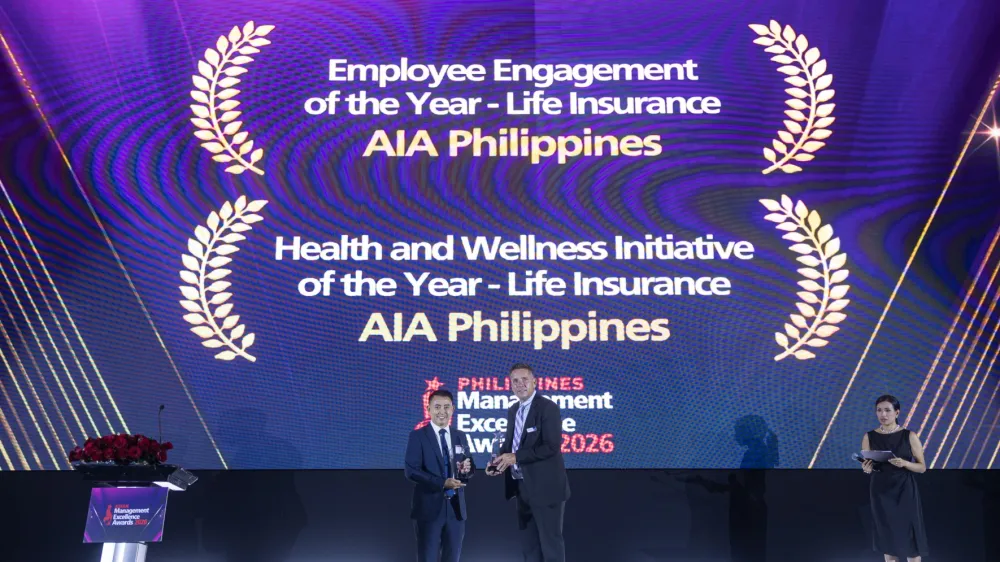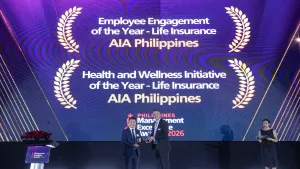
EY’s Jason Seng emphasises the need to align people, purpose, and capability to stay agile
He stressed that as organisations accelerate digital and AI-led transformation, leaders must ensure that technology serves people.
As Asia undergoes rapid digital and organisational transformation, leaders are challenged to strike a balance between technology, agility, and human-centred leadership. Organisations must harness innovation whilst fostering purpose, resilience, and inclusivity to remain competitive and future-ready.
Sharing key perspectives is Jason Seng, People Consulting Partner at EY in Singapore, specialising in people and human resources consulting. With extensive experience leading global and regional business transformations, he has worked across ASEAN, Greater China, Europe, and the Middle East.
His expertise lies in shaping the Future of Hybrid Work and future-proofing HR functions to enhance organisational resilience. He advised clients across diverse sectors, from consumer and health to industrials and energy, and technology.
As a judge at the Asian Management Excellence Awards 2026, he discussed how AI, agility, and ethical leadership are shaping the future of management excellence across the region.
What key trends do you see shaping the future of management excellence across Asia?
Artificial intelligence (AI) remains one of the most transformative forces shaping businesses today.
Beyond enhancing business and operational performance, AI is also transforming how organisations attract, develop, and retain talent. AI has the capability to automate routine tasks throughout the employee lifecycle and support personalised learning pathways that align with both employee aspirations and business goals.
Concurrently, the rise of agentic AI, which are systems capable of making and executing decisions, is accelerating workforce disruption. We are already seeing global banks and technology companies deploy AI agents to handle roles traditionally managed by people. For business leaders, this underscores the need to lead by example: staying digitally fluent, investing in continuous learning, and fostering a culture that embraces experimentation and innovation. This also means allocating resources for training and development and recognising employees who proactively upskill and reskill. Strengthening data and predictive analytics capabilities too can help HR teams anticipate skills gaps early and respond faster to technological shifts, turning disruption into a competitive advantage.
Amidst today’s rapid transformation, how can companies sustain agility whilst preserving a clear strategic direction and strong workplace culture?
To stay agile without losing direction, leaders must align people, purpose, and capability. Empathetic leadership builds trust and psychological safety, enabling teams to adapt and collaborate more effectively during change.
At the same time, organisations must invest in continuous upskilling and reskilling to maintain digital fluency across all roles. Agility is built on competence. Digital fluency ensures the workforce can pivot as business models evolve.
Lastly, diversity and inclusion should be embedded into decision-making. A workforce that reflects varied perspectives is more innovative, resilient, and better equipped to navigate uncertainty in a fast-moving environment.
As companies accelerate digital and AI-driven transformation, how can leaders ensure that human-centric values remain at the heart of innovation and decision-making?
As organisations accelerate digital and AI-led transformation, leaders must ensure that technology serves people. Strategic decisions should remain human-led, guided by judgement, empathy, and context that technology and AI cannot replicate.
In parallel, organisations need to embed ethical standards and core values into both their policies and AI systems to ensure responsible AI use.
Designing a human-centred approach to AI systems – i.e., one that enhances employee productivity and experience – will keep innovation aligned with purpose.
What strategies have been most effective in helping companies build a motivated and future-ready workforce?
With the significant impact that technology and AI can bring to organisations, understandably digital fluency amongst the workforce is important.
Hence, the most future-ready organisations are those that invest in digital fluency across all levels, helping employees gain the necessary skills to work effectively with technology. They also take a proactive approach to job redesign, rethinking roles and workflows to align with how work will evolve in an AI-driven economy.
Additionally, leading organisations embed AI across the employee lifecycle, from hiring to onboarding, learning and development, performance management and retention, to make workforce decisions more data-driven, personalised, and impactful.
Looking ahead, what qualities will define the next generation of exceptional leaders in Asia’s business community?
The next generation of exceptional leaders in Asia will be defined by their ability to adapt to the pace of AI and technology disruption. They know how to harness AI to drive measurable gains in efficiency, workforce engagement and employee wellbeing, whilst uniting multigenerational teams under a shared vision. True digital leaders will also lead by example, applying AI thoughtfully to shape a more agile, inclusive and human-centred future of work.
As a returning judge at the Asian Management Excellence Awards 2026, what key qualities or criteria will you prioritise when identifying true excellence in management and leadership?
As a returning judge, I would still prioritise the same key factors as before. These include the internal impact – focusing on organisations that empower their workforce through employee wellbeing, job security, and meaningful career development – and business impact – highlighting organisations that show measurable results in profitability, growth, and client satisfaction, both in good times and through periods of challenge. Lastly, the broader societal impact remains vital, recognising organisations that contribute to job creation and economic progress.


















 Advertise
Advertise









